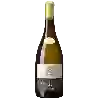
Cave de TainDomaine Pierre Secréte Collines Rhodaniennes Rosé
This wine generally goes well with beef, lamb or mature and hard cheese.
Food and wine pairings with Domaine Pierre Secréte Collines Rhodaniennes Rosé
Pairings that work perfectly with Domaine Pierre Secréte Collines Rhodaniennes Rosé
Original food and wine pairings with Domaine Pierre Secréte Collines Rhodaniennes Rosé
The Domaine Pierre Secréte Collines Rhodaniennes Rosé of Cave de Tain matches generally quite well with dishes of beef, lamb or spicy food such as recipes of sweet and sour turkish dumpling soup (eksili köfte), traditional tunisian couscous or beef fajitas.
Details and technical informations about Cave de Tain's Domaine Pierre Secréte Collines Rhodaniennes Rosé.
Discover the grape variety: Concord
It is the result of a seedling planted in the United States, around 1840, recovered near the Concord River, a small river located east of Massachusetts. According to genetic analysis, it is an interspecific cross between the catawba and a vitis labrusca. Concord was for a long time the main variety cultivated in North America. It was introduced into Europe at the beginning of the 19th century, in France at the beginning of the phylloxera crisis, but was not widely propagated. It could be found in the Valleraugue region (Gard) at the foot of Mont Aigoual, in the Ardèche (our photos), etc. Today, it exists only as an isolated strain that can sometimes be found on the edge of a slope, which was our case. Through various and numerous crosses, it has been used to obtain some rootstocks and direct producer hybrids, which have now almost all disappeared.
Last vintages of this wine
The best vintages of Domaine Pierre Secréte Collines Rhodaniennes Rosé from Cave de Tain are 2016, 2015
Informations about the Cave de Tain
The Cave de Tain is one of wineries to follow in Collines Rhodaniennes.. It offers 219 wines for sale in the of Collines Rhodaniennes to come and discover on site or to buy online.
The wine region of Collines Rhodaniennes
The wine region of Collines Rhodaniennes is located in the region of Méditerranée of Vin de Pays of France. Wineries and vineyards like the Domaine Les Vins de Vienne - Cuilleron-Gaillard-Villard or the Domaine Les Vins de Vienne - Cuilleron-Gaillard-Villard produce mainly wines red, white and pink. The most planted grape varieties in the region of Collines Rhodaniennes are Viognier, Marsanne and Roussanne, they are then used in wines in blends or as a single variety. On the nose of Collines Rhodaniennes often reveals types of flavors of red fruit, cassis or black olive and sometimes also flavors of black plum, rhubarb or savory.
The wine region of Méditerranée
Méditérranée is a PGI title that covers wines produced in a large area of the South-eastern coast of France, roughly corresponding to the wine region of Provence but also including Part of the Rhône Valley. The PGI shares its territory with multiple AOC appellations as varied as Châteauneuf-du-Pape, Bandol and Côtes de Provence. The PGI Méditérranée catchment area extends over 10 departments (including the two on the island of Corsica), as well as smaller parts of the Isère, Loire and Rhône departments. Viticulture is essential to the culture and economy of this part of France.
The word of the wine: Mou
Said of a wine unbalanced by its lack of acidity.













